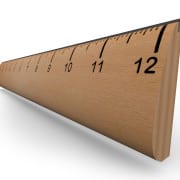Have You Checked Out?
Consider this:
How often do you check out on your Business Development activity and goals? A friend and I were talking about the many opportunities for us to distract ourselves while feeling virtuous about it: clearing email, checking LinkedIn for updates from contacts, making lists of the things we plan to do. Most of us even carry Instant Distraction Devices (also known as smartphones) everywhere we go. And, of course, your billable work is both a must-do and a bulletproof source of distraction from other things you’d rather not think about.
I sometimes check out when a task feels too daunting. When it’s big and involved and complicated (even if that’s only because I’ve made it so in my own mind) or when the risk of failure is high. I don’t necessarily mean to do it, but I get distracted because I want to get away from the task at hand. Checking out feels especially legitimate if I’ve actually failed at something, like I’m taking a justified break to catch my breath and renew my energy so I can come back from the failure. Maybe you can relate?
The problem is that checking out, especially when things aren’t going well, eliminates the opportunity to turn things around.
Checking out (even when it’s otherwise a productive activity) ruins momentum. Whatever you do instead interrupts your flow and prevents consistency in your Business Development strategy. Worse yet, it undermines the opportunity to reflect on what isn’t going well and learn from mistakes or obstacles. Lifting your attention from your business development plan (or whatever goal you’ve set for yourself) is analogous to working out for a few weeks or months and then stopping cold turkey: you’ll lose your stride, you’ll lose the strength you’ve built, and most importantly, you’ll lose confidence in yourself and your commitment.
If you check out because things aren’t going as well as you’d hoped they would, here’s what you need to know: some failure is guaranteed to occur when you’re working to grow your practice. You won’t land every potential client or every piece of business. It’s painful to experience even though we know nobody succeeds at everything they attempt. That’s why it’s critical to learn how to fail forward by taking the lessons from your failure so you can make the necessary changes to succeed instead. (For more on this, read John Maxwell’s excellent book Failing Forward.)
Failing forward means that you need to pay attention even when you most want to distract yourself. When you went all-out on a pitch and didn’t get the work. When a potential client promised they were ready to retain you but somehow slipped away. When a promising opportunity to reach a specific potential client or an ideal audience falls apart. When you have the steps of your strategic Business Development plan in place, when you’ve identified the tasks you’ll undertake to effect that strategy, and you stop—whether that’s due to cold feet or other business activities that takes precedence over your plans. Surrender the easy comfort of distraction in favor of doing the hard work that will allow you to reach your Business Development goals.
As you do your annual Business Development review this month, be sure to notice where you stopped because of a failure, an unexpected circumstance, or cold feet. Think about how you can trigger yourself to “pay attention like never before” when something similar happens to your Business Development strategy in the future. You might design a “what stopped me?” analysis. You could arrange an accountability partnership with a friend or colleague and emphasize that you want your partner to ask the hard questions and force you to pay attention when you hit a block. Be creative: there are an infinite number of ways to ensure that you’re paying attention when you want to check out instead, and the only thing that matters is that you choose one and use it.
As for me, I’ve been using a weekly review process. Here’s how that looks:
- At the beginning of the week, I set weekly tasks in the various areas of my life that are tied to my annual goals.
- At the end of the week, I track what I accomplished from my task list.
- Finally, I apply the “traffic light test”: where did I stop (red light), where did I keep going but pull back on my efforts (yellow light), and where did I press forward with all my energy (green light)?
Using this process doesn’t necessarily guarantee that I won’t check out during the week, but it gives me a structure so that I don’t stay checked out. When I look at my red and yellow light lists, I’m forced to pay attention to what’s happening and the decisions I’m making. I can make a conscious decision to stop or slow down, but I can’t stay distracted from the lessons that each week offers.
Take a moment right now to ask yourself: how often do you check out from your Business Development goals? When and why? Then design your own structure so that you don’t check out. Build that structure into your 2023 Business Development plan. Pay attention and refine your plans based on what you discover. By doing this, you’ll avoid stopping because of cold feet and missing the lessons of failure. Your attention will propel you forward, and 2023 can be your best year yet.
If you’d like help with this process, let’s chat. (I’m only accepting one new client to begin working together in January 2023, so don’t delay.)
Enjoy your holidays, and happy new year!














Leave a Reply
Want to join the discussion?Feel free to contribute!